Honey mushrooms are nature’s paradox: dangerous to plants but edible for humans. With a wide range of health benefits, this superfood can be used as both a supplement or an ingredient in your next dish. Research has also shown that honey mushrooms may have anti-tumor and anti-cancer properties.
What is this mysterious medicinal mushroom, and how can you incorporate it into your lifestyle? It’s simpler than you think! We’ll cover how you can add it to your diet, and the many medicinal properties it has.
What are honey mushrooms?
Honey mushrooms are parasitic fungi that grow on wood. This sounds disgusting, but it’s how these delicious ‘shrooms are created for us to enjoy. It’s the largest living organism in the world–but the majority of the specimen roots itself underneath the soil and clamps itself inside infected trees.
When bloomed, honey mushrooms blossom into clusters of yellow-brown toadstools ringed with white around the stem. These toadstools hang around infected shrubs and trees and only last a few days.
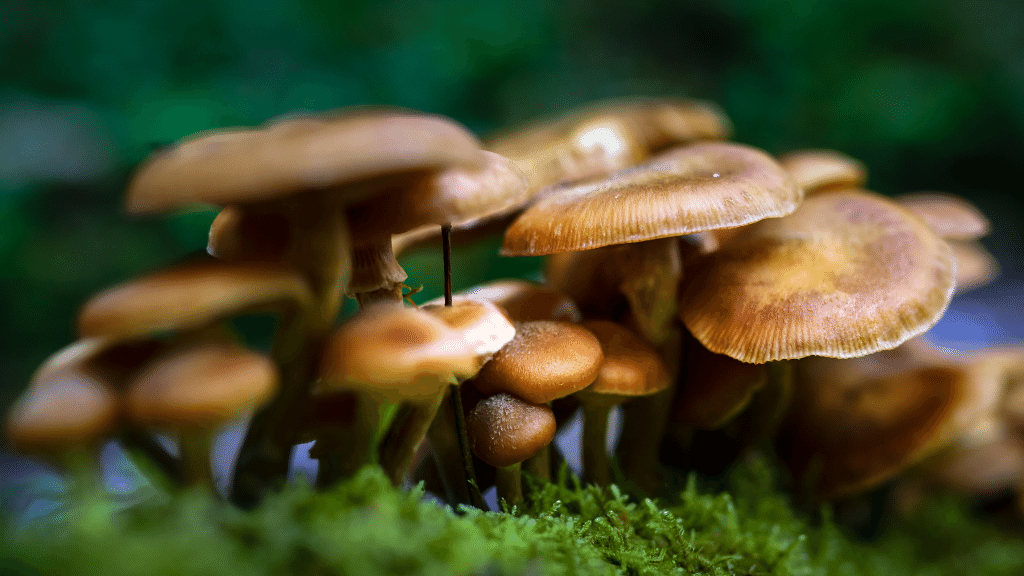
Within the armillaria genus, there are several types of this fungi with some species displaying bioluminescence which results in foxfire, casting a gorgeous bluish-green glow.
Where are honey mushrooms located?Honey mushrooms tend to grow in small dense clumps called tufts. They love to sprout on dying wood whose roots have rotted. The mycelial threads attack tree roots which can spread to neighboring healthy trees.
Once the trees have died, honey mushrooms can form, usually at the base of the trees.
They thrive in this climate, usually in the northern hemisphere but have also been found in tropical climates.
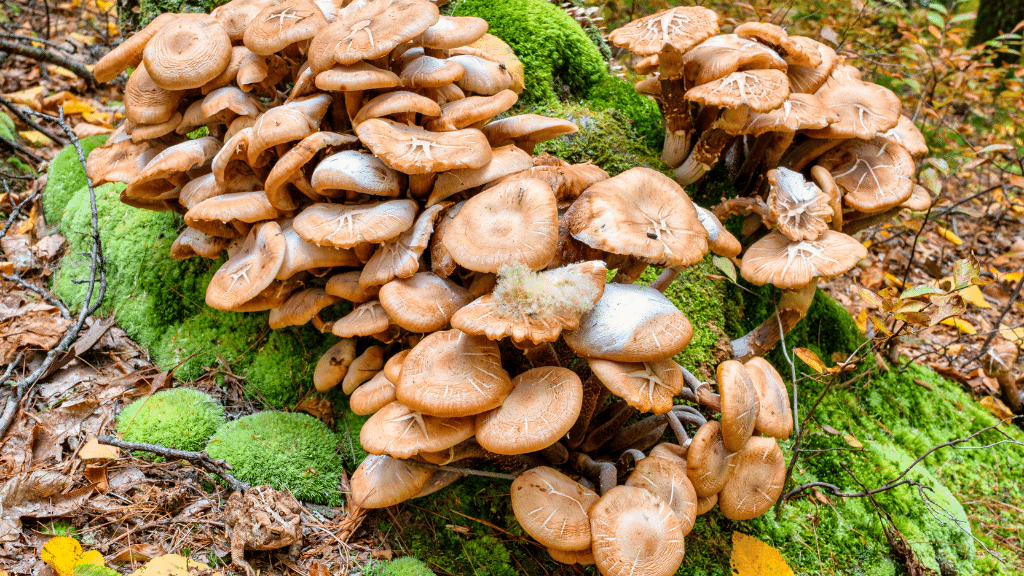
If you’re hunting them yourself in the wild, beware of deadly lookalikes such as sulfur tufts and deadly galerinas and always work with a professional.
What are the health benefits of honey mushrooms?
Honey mushrooms are sought after for their various potential health benefits in supplement form and as a cooking ingredient. If you’re cooking them, however, make sure to boil them prior to adding them to a meal. Like other mushrooms, they produce slime when cooked in liquid called mucilage. Luckily this is easy to avoid. By either dehydrating or blanching them in salted water, you’ll save yourself from the gooey mess (although this makes them a nice addition to soups).
These mushrooms have been used in Asian herbal medicine but the scientific evidence is rather recent.
Still, research has found that honey mushrooms contain several powerful benefits, and may support:
- Anti-inflammatory
- Anti-diabetic
- Anti-depressant
- Aids in treating sleeping disorders
- Immune boosting, and more
1. Protects brain health
Honey mushrooms have the potential to enhance brain function and protect against certain disorders, such as neurodegenerative disorders. Research has found that extracts from honey mushrooms improved neuron function, prevented cell damage, and decreased protein buildup in the brain. This has all been linked to Alzheimer’s disease, making this an important finding.
2. Anti-inflammatory
A study analyzing a water extract of armillaria mellea found that it alleviated depression-like behaviors in stress-induced rats with anti-inflammatory action. In another study, the molecule xylosyl was isolated and was shown to suppress the release of inflammatory mediators.
3. Anti-diabetic
Type-2 diabetic rats were used to observe the result of administering armillaria mellea, which lowered blood glucose levels significantly and inhibited fatty molecule accumulation in the liver along with increasing lipase levels (the enzymes involved in fatty acid metabolism). These findings indicate the initial research of using honey mushrooms as a dietary supplement or drug for those who are diabetic.
4. Anti-depressant
A 2019 study’s findings with mice showed markedly antidepressant activity while performing specific tests. Sesquiterpenoids were isolated and used to counter depression in these mice, which also found that it could modify levels of neurotransmitters such as dopamine–the very neurotransmitter that’s partially responsible for depression. It has also been used to treat neurological disorders in Asia including epilepsy.
5. Helps in treating sleeping disorders
Armillaria mellea fermentation liquor (or AFL) was used in a study after researchers learned that honey mushrooms had been used in China to treat insomnia for several centuries. In the study, rats were induced with p-chlorophenylalanine to measure the insomnia, serotonergic systems and their gut microbiota. In a surprising find, all dosed rats received a plethora of insomnia relief and other benefits including normalized gut composition of the microbiota. By modulating the serotonergic system and the gut microbiota, the insomnia was alleviated. Of course, like many of the potential benefits of honey mushrooms, human trials are needed to better evaluate the efficacy.
6. Cholesterol regulation
In a rat study, the effect of glucomannan was observed after administering them with a modified AIN-93G diet for 18 days to raise their cholesterol. Cholesterol absorption was significantly reduced from 37.5% in the C group and 20.2% in the G group, while other groups also saw a vast reduction. This evidence suggests that honey mushrooms may have another potentially great benefit.
7. Immune-boosting properties
Honey mushrooms are immunomodulators, meaning that they may help the body fight infections, cancer, and other diseases. By boosting certain white blood cells, they communicate with the immune system. Polysaccharides found in honey mushrooms have great immune-boosting qualities.
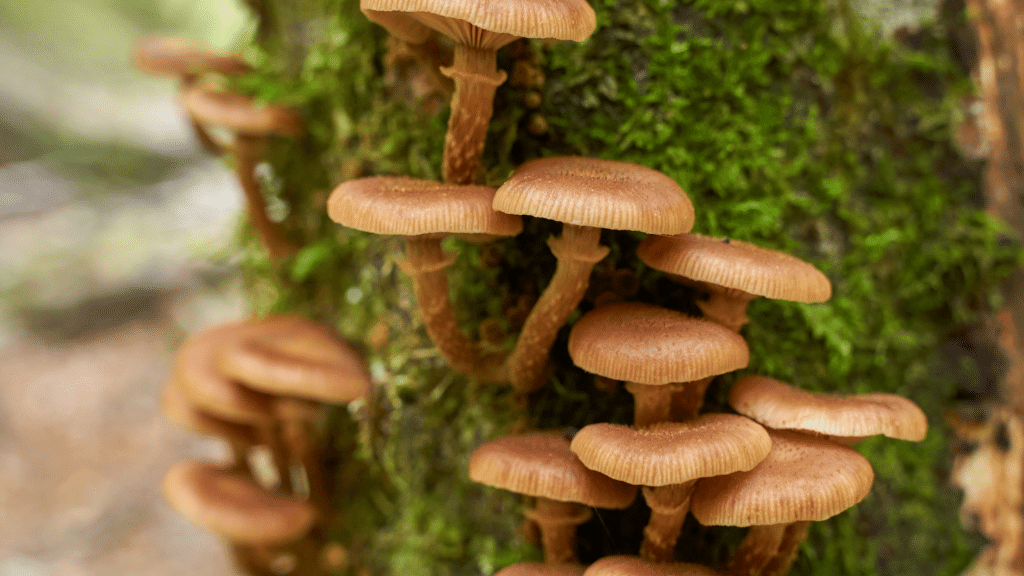 A note on honey mushroom studies
A note on honey mushroom studies
Although the current research on honey mushrooms and its powerful benefits is ongoing, it has been primarily conducted on animals or in-vitro. As studies on animals and humans develop, we continue to understand what these mushrooms can do for our health.
Potential side effects of honey mushrooms
Although bitter when raw, honey mushrooms taste better when cooked. They’re generally considered safe to eat, but a specific member of the genus called armillaria mellea that grows on hardwoods may be potentially upsetting for some consumers.
Always make sure to cook your honey mushrooms to help prevent potential side effects, such as mild gastrointestinal discomfort.
They should not be confused with deadly galerina, a mushroom that closely resembles the edible kind. If you do accidentally consume deadly galerina, seek medical attention right away–what starts out as vomiting and diarrhea can turn into kidney dysfunction and even death.
Using honey mushrooms in commercial products
It’s nearly impossible to find honey mushrooms in commercial products, but it’s occasionally found in powder form. Since raw honey mushrooms can be toxic if consumed, they are treated in a way to remove the toxins. Another option is a local apothecary who may be able to create a tincture with locally sourced honey mushrooms.
Honey mushrooms may be beneficial for both body and mind.
The research is still ongoing and continues to develop, especially when it comes to human findings, but that doesn’t mean we should ignore the evidence.
It’s clear this super-fungus is more than a pretty color–and can be a staple in your diet and lifestyle.

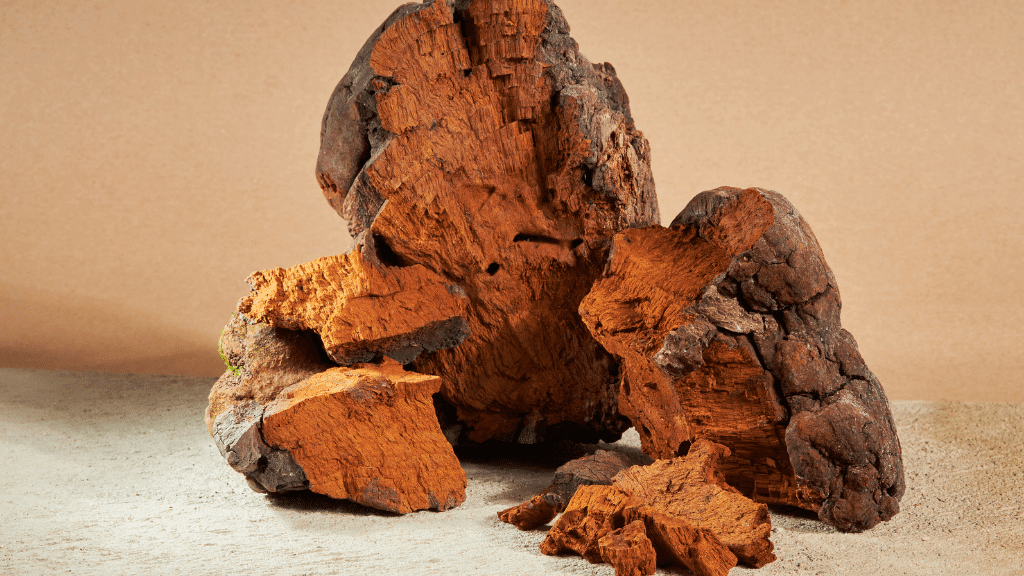
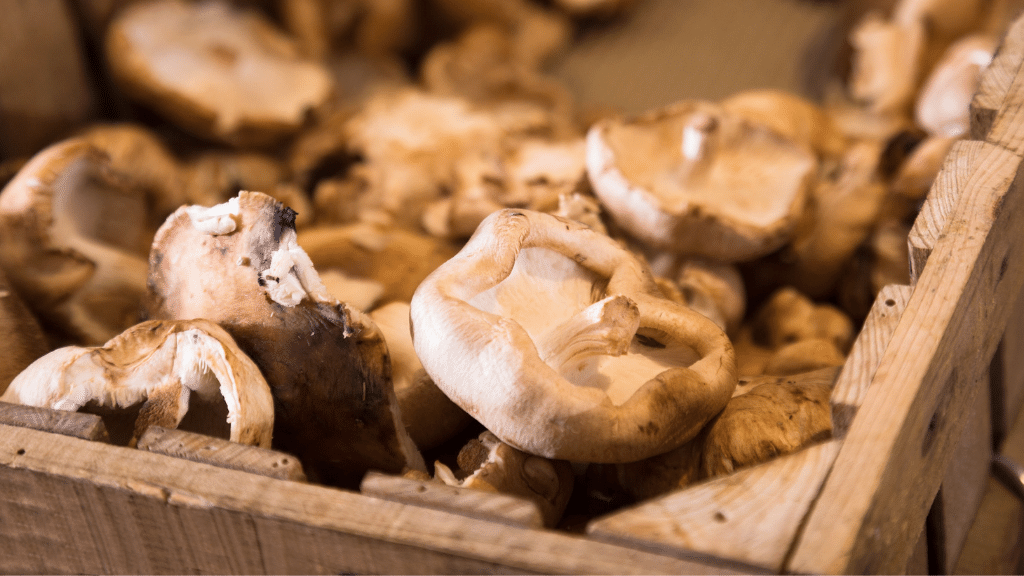


.png)
